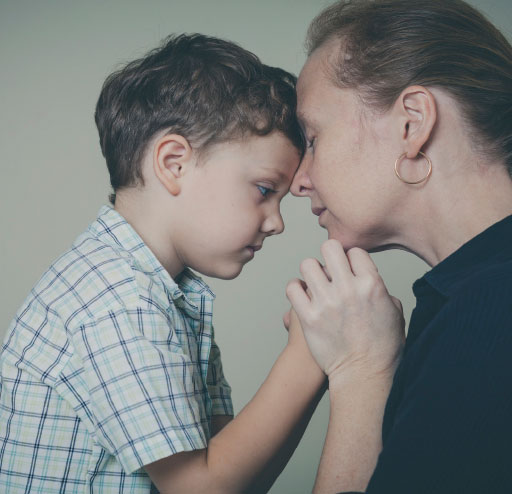Download a printable copy of this article (PDF 469KB)
 All parents and carers have frequent or at least occasional concerns about whether their child is being bullied at school, in the neighbourhood or online. It is important that parents and carers do whatever they can to prevent bullying and to be proactive about it. Preparing your children to respond well if bullying presents in their lives is challenging, and the preference is to be proactive rather than reactive. It is far more helpful to work on prevention than to wait until emotional damage is done.
All parents and carers have frequent or at least occasional concerns about whether their child is being bullied at school, in the neighbourhood or online. It is important that parents and carers do whatever they can to prevent bullying and to be proactive about it. Preparing your children to respond well if bullying presents in their lives is challenging, and the preference is to be proactive rather than reactive. It is far more helpful to work on prevention than to wait until emotional damage is done.
This article suggests five steps that can help prepare your child. These steps help to build an increased awareness of how to address bullying behaviours. While there can be no absolute guarantees, these steps will provide your child with the best possible chance of behaving appropriately and being able to choose a well-aimed response if faced with a bullying situation.
“Success is where preparation and opportunity meet.”
– Bobby Unser
Be Prepared
For decades the scouting movement has encouraged its members to be prepared, and this applies to bullying, reminding parents and carers to be prepared by talking about bullying in advance. It helps enormously to talk about bullying and devise strategies when you are calm and have the ability to think rationally. This provides balance for children because calmness enables you to agree on the right words and actions to use if bullying appears. It’s very difficult to devise a new strategy in emotional moments, so it makes sense to do that work early.
Being prepared also means that parents, carers and children deal with bullying far more quickly, so that nobody needs to experience a bullying episode for longer than they need to.
Limit The Payoff
Children who bully require a reward for their toil. They need a payoff for the effort that they’ve gone to and it’s beneficial for your children to learn how to underpay with their reactions. This way, the bullying behaviour just isn’t worth it for the student engaging in this behaviour. Perhaps one of the best words you can teach your child is one that many parents and carers find annoying, and it’s the word “whatever”. It’s just one of many possible strategies that may be successful, noting that not all strategies work all of the time. On the right occasion though, if the word “whatever” can be delivered with confidence and in a way that makes it clear that the bullying behaviour doesn’t matter, the child who is bullying receives less reward for that behaviour. If you think about the effort to bully as being worth a dollar, your child should aim to provide only five cents worth of reward.
This isn’t to say that if your child or children experience bullying they shouldn’t feel upset at the time, or frightened, or worried about the bullying behaviour. The aim is for children to express these emotions to you or someone else they trust, rather than to provide them to the bully as a payoff.
Vigilance
Keep an eye on your children. Look out for the signs of bullying, such as shifts in mood or behaviour. Look for indications that children are isolating themselves from certain conversations or from certain people. Stretch your vigilance into the online world. It’s appropriate for parents and carers to check in on their children’s online experience, even insisting on having their passwords, so that you can be as aware as possible of the circumstances or perils that they might be facing. This way, you can act quickly and decisively.
Alliances
Bullies need your child’s allies to be separated. They will try to make sure that the online, school and home environments are disconnected for the student who is being bullied so they are not in collaboration or communication. Because of this, always work in partnership with your school towards the goal of an agreed strategy to prevent and deal with any bullying problems.
When students who are bullied work together with parents and teachers and agree on strategy, language and ways to improve resilience, this background work improves the likelihood of reducing the frequency and severity of the bullying.
Most importantly, your child needs you as their biggest ally. This doesn’t mean fighting their battles for them, it is more about working side-by-side for a better outcome.
Connections
Making sure your children are prepared means encouraging them to have multiple people in multiple domains of their lives to communicate with. Encouraging your child to make friends in a variety of groups so that the people that they go to school with are not necessarily the ones that they play sport with, or are in band with, or the ones they hang around in the street with, is a genuinely productive and proactive parenting and care giver tactic.
Encouraging your children to have wide support networks is a wonderful protective factor against the isolation, hurt and despair that bullying can cause. Put simply, if something goes wrong in one domain of their lives, they always have other domains of their lives where they feel valued and safe.
Above all, we parents and carers need to regularly remind our children that, should bullying become a problem for them, we are there to help. Remind them at the dinner table, remind them during the ride to school, remind them until they complain about our constant supportive reminders. They’ll thank us in the long run, not only for that support … but for the comfort that comes from always knowing support is there.








